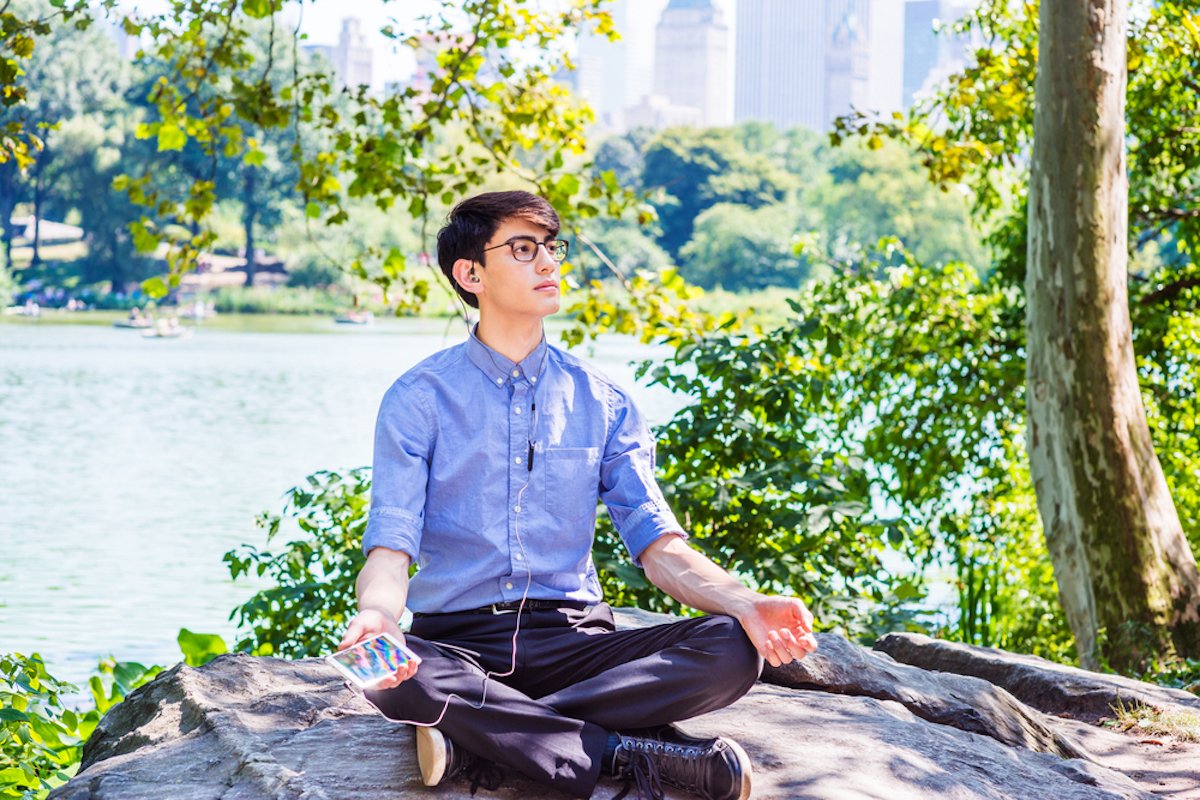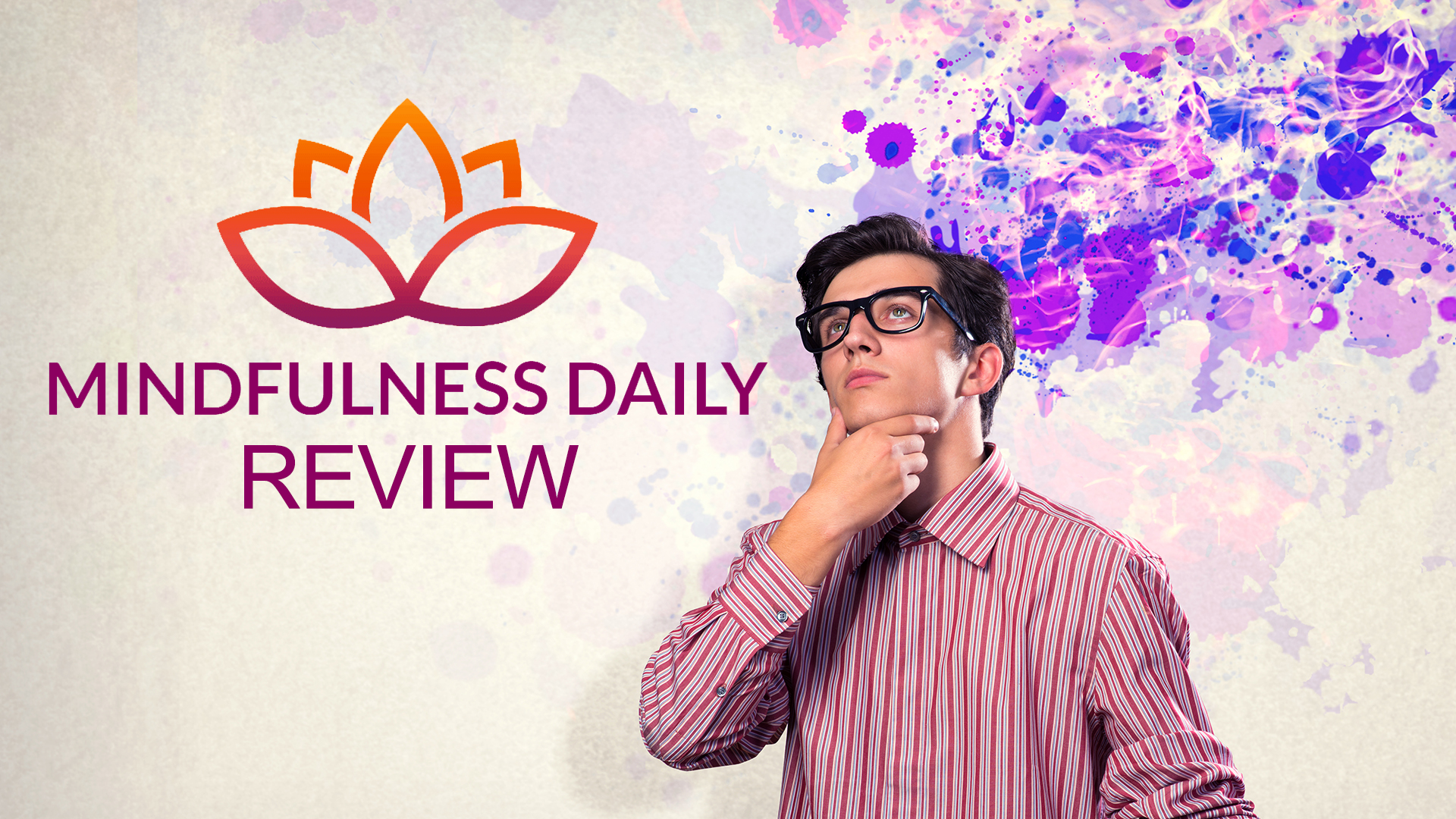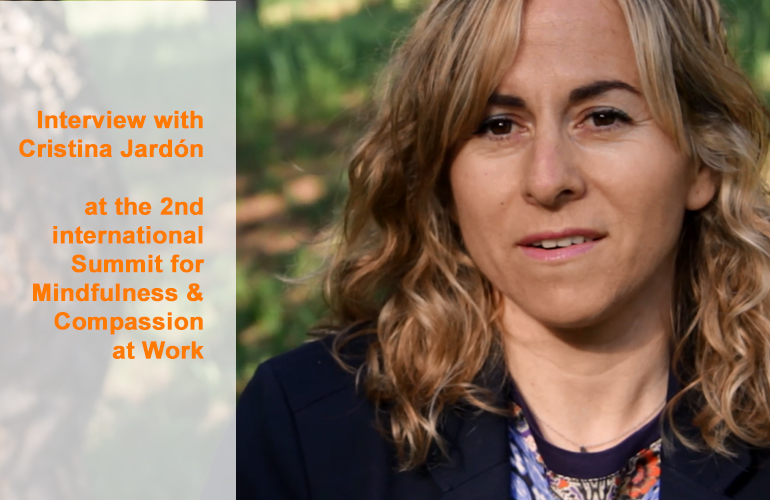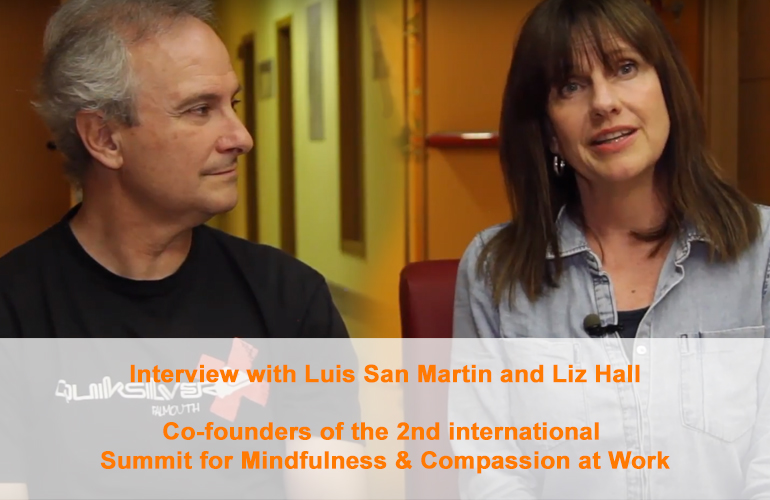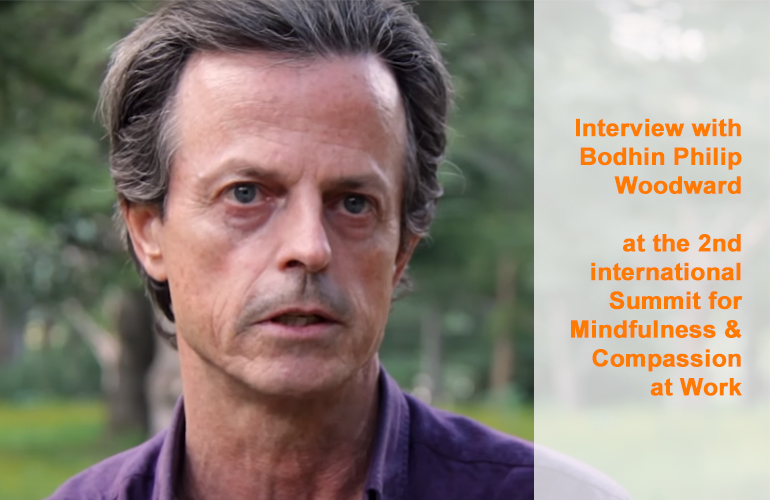Search the Community
Showing results for 'mindfulness based stress reduction'.
-
So, I'm curious about meditation and mindfulness, and I've seen a lot of ads on Instagram for all these meditation and mindfulness apps. Does anyone have experience from using an app for meditation? And can you recommend me your faves (preferably free apps because I'm cheap like that) ? And do mindfulness apps really work? Thank you!
-
Research on mindfulness apps is limited, but here's what we know so far. By Kira M. Newman on behalf of the Greater Good Science Center. Want to feel more Calm, get some Headspace, and practice Mindfulness Daily? There are apps for that — hundreds of them, besides the three I just mentioned. These apps make a promise: rather than investing countless hours and dollars in mindfulness classes or mindfulness-based therapy, we can choose to meditate from the comfort of our smartphones. Users are flocking to mindfulness apps in hopes of cultivating kind attention to their own thoughts and feelings, and of reaping the mental and physical benefits that go along with mindfulness. But do they work? What does science say about mindfulness apps? Research began in earnest only about four years ago, and studies are indeed pointing to potential benefits for our stress, emotions, and relationships. The findings may not be as conclusive as app marketers would have you believe — but they do suggest you should at least consider trying one. Digital stress reduction Much of the research so far involves the popular mindfulness app Headspace, which has attracted 20 million users across 190 countries since its launch in 2012. The app’s meditations are voiced by Headspace founder and former Buddhist monk Andy Puddicombe, starting with simple breathing and body scan practices. “Users are flocking to mindfulness apps in hopes of cultivating kind attention to their own thoughts and feelings.” In one 2018 study, researchers tested Headspace with 70 adults. All the participants started by answering surveys about their positive and negative feelings, their stress, and their irritability in the past week. Then, over the course of a month, half the group completed ten introductory sessions on Headspace, while the other half listened to excerpts from Puddicombe’s audiobook about mindfulness and meditation without any guided practice. Afterward, the meditation group was faring much better. According to a second round of surveys, they felt (on balance) more positive emotions and less burdened by external demands, responsibilities, and pressure than the audiobook listeners. These changes happened after just 100 minutes of practice. “This is great news for people that are curious about mindfulness but are worried about having to invest hours and hours of time before seeing any benefits,” says lead author Marcos Economides, who (along with his coauthors) was employed by Headspace at the time of the study. “Such early benefits could provide motivation for casual users to develop a more long-term mindfulness practice.” Do mindfulness apps work? © shutterstock/TeodorLazarev Stress is also biological, leaving an imprint on our bodies that can lead to health problems later in life. Could mindfulness apps affect stress at this level, too, not just in our minds? In another recent study, researchers tested this question while also trying to figure out which aspects of mindfulness education are most crucial. They recruited 153 adults to practice for 20 minutes a day, splitting them up into three groups. One group practiced the mindfulness skill of monitoring, which involves detecting and distinguishing between different sensations in your body. RELATED: The 5 best happiness apps to improve well-being A second group learned monitoring and acceptance, the ability to stay relaxed, welcome thoughts and feelings in your mind, and gently acknowledge them. A third group learned coping skills, like seeing the positive in negative situations and analyzing personal problems. These newfound skills were put to the test at the end of two weeks. In an infamous laboratory experiment, participants had to give a five-minute speech and do math out loud while trained observers gave critical feedback, pointed out errors, and generally exuded coldness and judgment. All the while, the participants wore a cuff to monitor their escalating blood pressure and gave periodic saliva samples that would be analyzed for cortisol, a hormone released in response to stress. “Stress is also biological, leaving an imprint on our bodies that can lead to health problems. Could mindfulness apps affect stress at this level, too, not just in our minds?” Contrary to the first study, participants in the three groups didn’t perceive their stress to be different — after giving a speech or doing tricky subtraction, they all felt similarly anxious and insecure. But their bodies told another story: Here, only the group that had learned monitoring and acceptance had lower systolic blood pressure during the task and lower cortisol afterward. “This study was the first to show that a brief two-week mindfulness training app can change a person’s biological response to stress,” says lead author Emily K. Lindsay, a postdoctoral fellow at the University of Pittsburgh. RELATED: 7 mindfulness tips to stay present When we learn acceptance, she and her colleagues explain, we may be better able to acknowledge but disengage from difficult experiences — like cringe-worthy judgment from others. This study suggests that the benefits of mindfulness aren’t just from improved attention, but from the gentle, nurturing attitude we cultivate toward ourselves. Mindfulness apps under the microscope Less stress isn’t the only outcome we can hope to achieve through our digital contemplative practice. In 2017 researchers conducted one of the only studies that compared a mindfulness app with a traditional, in-person mindfulness class. Here, nurses in residency listened to Headspace meditations or attended a class once a week for four weeks. Ultimately, the app users improved their mindfulness skills — in particular, their ability to act with awareness and not overreact to their thoughts and feelings. They also felt less fatigue and burnout in their caregiving role, compared to class attendees. Several studies have compared participants who used Headspace to those who used another beneficial app, like the brain-training app Lumosity, the organizational app Catch Notes, or a web app with logic problems. After training for 10-20 minutes a day for 10-30 days, Headspace users reduced their mind-wandering, boosted their positive emotions, reduced their symptoms of depression, and became kinder and less aggressive compared to other app users. In one study, though, Headspace didn’t seem to improve people’s satisfaction with life, flourishing in life, or negative feelings. “There is still a lot we don’t understand about how mindfulness works, and how much mindfulness practice is needed for certain benefits to emerge,” Economides says. Mind the app: mindfulness technology © shutterstock/Dean Drobot Another question for future research is how long any benefits last. One of the few studies with a follow-up did have promising results: Compared to participants on a waiting list, people who used the VGZ Mindfulness Coach app for eight weeks — which features a variety of breathing, body scan, visualization, and mantra meditations — became more mindful, showed fewer symptoms of psychiatric disorders, and boosted their quality of life up to four months later. RELATED: Does meditation really work? Here's what science says Meditation apps aren’t just a boon for consumers hoping to learn how to be more present at an affordable price. If effective, they also have implications for workplaces, schools, and even nations, who want to cultivate happier and healthier communities. This is where research on which apps are beneficial, and why, is particularly important. “It's vital that we understand the potential benefits of engaging with such apps, and how these compare to programs that are taught in-person, if we are to have the greatest impact on people’s well-being,” says Economides. ● Main image © shutterstock/Alexander Image Do you use mindfulness apps? Which ones? Let the happiness.com community know what you think of them... Written by Greater Good Science Center This article originally appeared on Greater Good, the online magazine of the Greater Good Science Center at UC Berkeley. Happiness.com is honoured to republish it with the kind permission of the Greater Good Science Center. greatergood.berkeley.edu
-
Looking to develop or improve your mindfulness practice? Tine Steiss reviews Mindfulness Daily, an app that aims to do just that. In Mindfulness Daily, Jack Kornfield and Tara Brach are presenting a 40-day introduction for mindfulness and meditation. You can access the daily lessons via an app or online. Mindfulness Daily app: what is it? The lessons are usually around 10 minutes long and are either taught by Jack or Tara. An explanation about today's subject is followed by a guided meditation to dig deeper into the subject. It's wrapped up with a daily practice to try throughout the day. Finding some space to incorporate your Mindfulness Daily practice during the start of your day could be a great idea. RELATED: Morning meditation – the secret to a great day Once you've completed a lesson you can access the following one the next day. This creates a nice pace and means that you can't rush through the course. You're given the time to explore each lesson throughout your day and you can always revisit the lessons you've already completed. These lessons are currently divided into four main topics: Mindfulness Basics Emotional Intelligence Resilience, Healing and Inner Freedom Mindful Living With the latest update of the Mindfulness Daily app, each lesson also has a name. This makes it much easier to revisit your most influential lessons when you feel like you need them. With this, you can tailor your sittings to your daily needs once you've finished the course by starting out with a subject you'd like to focus on. Which means the app keeps being your little helper, even after having finished the course. “Once you've completed a lesson on Mindfulness Daily you can access the following one the next day. This creates a nice pace and you can't rush through the course.” The course has a great structure that guides you through all the relevant areas of mindfulness without being boring or too demanding. It's suitable for beginners as a first introduction to mindfulness, but if you're more experienced you will still find this course helpful and structured and are likely to discover new aspects of mindfulness for yourself. Get 'appy: Mindfulness Daily offers 40 lessons Going through 40 aspects in 40 lessons you'll most likely encounter some that seem to be an easy ride and some that touch you on a deeper level. So, this is also a great way to explore where to focus on more in your future practice. Pricing and benefits Mindfulness Daily is distributed by Sounds True, an independent multimedia publishing company focusing on spiritual traditions, arts and humanities. I paid $38 for the app, so each lesson came down to less than $1. If you download Mindfulness Daily you also get access to other free Sounds True content. Even its regular newsletters come with free content, so the marketing is actually a win-win deal; they remind you to spend your money with them and give you something nice for free. Fair enough if you ask me. [UPDATE] Mindfulness daily is now available for free! RELATED: The 5 best happiness apps to improve well-being The Sounds True library app is a similar deal. It provides you with easy access to meditations, music, Mindfulness Daily and whatever else you may buy there in the future. It also tracks the time you've been meditating with the app, offers a meditation timer with different bells, and a journal for your experiences. This keeps me from not deleting the app from my phone and even using it on a daily basis. Mindfulness Daily: my personal experience Due to the briefness of each lesson, it's easily incorporated into your morning routine. At least for me, it was easy to sit down for ten minutes each morning and I didn't skip or postpone a single day. Most of the time I'd even revisit a lesson in the evening again to wrap up my day. “The Mindfulness Daily app course has a great structure that guides you through all the relevant areas of mindfulness without being boring or too demanding.” I started with meditation many years ago, but it wasn't until about two years ago that I developed my personal daily routine. Having a structured program is very helpful for me to keep up a daily practice. Even better if it helps me revisit and expand my knowledge and practice. So, the structured daily lessons were really up my alley to start with. I also realized how I got a bit slack after the course had finished. But I started using single lessons matching my needs that day as an intro to my daily practice. High praise: daily meditation using Mindfulness Daily works Furthermore, I admit to being a bit of a Tara Brach fangirl. She has a lot of free content out there that I listen to regularly. Normally it's harder for me to concentrate on a subject if I'm just listening and I prefer reading about it. In her case, it's the other way around. I had some troubles reading her book True Refugee. On the other hand, listening to her talks is a great experience, as the way she explains things really resonates with me. So, that's one of the main reasons I chose this course. If you're unsure about whether or not you like Tara Brach's or Jack Kornfield's style, just check out the free content they provide. Some of it you can also get for free on Sounds True. ● Main photo: colourbox.com Written by Tine Steiss Tine is part of the happiness.com team. She's an artist, meditator, media engineer and MBSR teacher. If she's not traveling she's working on turning her rooftop terrace into a garden paradise. Find out more about her on Instagram.
-
Work is an intrinsic part of our lives, so it’s better if we can enjoy it. Cristina Jardón talked with Arlo Laibowitz about why listening, compassion and mindfulness are essential workplace tools... The second International Mindfulness & Compassion at Work Summit took place in Madrid on the 26th and 27th of April 2018. We were able to shoot interviews with five of the amazing speakers, including Cristina Jardón, an expert trainer in emotional intelligence, mindfulness and self-compassion. This is what she says about herself: "Restless and curious. Here I am. Optimist of birth and by training. Passionate about the simple life, without more. Spirituality and transcendence are two of my great values." Enjoy the full video interview with Cristina below. .embed-container { position: relative; padding-bottom: 56.25%; height: 0; overflow: hidden; max-width: 100%; } .embed-container iframe, .embed-container object, .embed-container embed { position: absolute; top: 0; left: 0; width: 100%; height: 100%; } Also, part of this mini-series, our interview with Bodhin Philip Woodward on the impact of mindfulness and compassion in your daily life, plus our interview with the organizers of co-founders of the summit, Liz Hall and Luis San Martin and Dr Jutta Tobias on her research on compassion in teams beyond the mindfulness intervention. ● Written by Arlo Laibowitz Arlo is a filmmaker, artist, lecturer, and intermittent practitioner of metta meditation and morning yoga. When not dreaming about impossible projects and making them happen in the most impractical ways possible, he journals, listens to jazz, or cuddles with his better half.
-
In the workplace, mindfulness and compassion is increasingly becoming more important. Experts in their field, Liz Hall and Luis San Martin talked with Arlo Laibowitz about why these skills are needed more than ever at work. The second International Mindfulness & Compassion at Work Summit took place in Madrid on the 26th and 27th of April 2018. We were able to shoot interviews with five of the amazing speakers, including the co-founders of the summit, Liz Hall and Luis San Martin. They share their thoughts of happiness, compassion and mindfulness at work in the video below. Enjoy! .embed-container { position: relative; padding-bottom: 56.25%; height: 0; overflow: hidden; max-width: 100%; } .embed-container iframe, .embed-container object, .embed-container embed { position: absolute; top: 0; left: 0; width: 100%; height: 100%; } Liz Hall is the co-owner/founding editor of Coaching at Work magazine; an award-winning journalist on business and health/well-being; an author/editor; an executive coach, and a trained mindfulness teacher/trainer who works with coaches, leaders and the general public. “If you get people to empty their minds and just listen, amazing things happen.” Luis San Martin Luis San Martin, in addition to being the chair/co-founder of the Association for Coaching Spain, is an executive coach and OD consultant. Luis has an MSc in International Business and his business experience includes CEO responsibilities in multinational companies in several countries. As part of his portfolio, he works with organisations to introduce mindfulness to their employees. Also, watch our interview with Bodhin Philip Woodward on the impact of mindfulness and compassion in your daily life. ● Written by Arlo Laibowitz Arlo is a filmmaker, artist, lecturer, and intermittent practitioner of metta meditation and morning yoga. When not dreaming about impossible projects and making them happen in the most impractical ways possible, he journals, listens to jazz, or cuddles with his better half.
-
What benefits do mindfulness and compassion have? And how can we increase their levels naturally? Arlo Laibowitz sat down with Bodhin Philip Woodward to find out more. The second International Mindfulness & Compassion at Work Summit took place in Madrid on the 26th and 27th of April 2018. We were able to shoot interviews with five of the amazing speakers, including Bodhin Philip Woodward: .embed-container { position: relative; padding-bottom: 56.25%; height: 0; overflow: hidden; max-width: 100%; } .embed-container iframe, .embed-container object, .embed-container embed { position: absolute; top: 0; left: 0; width: 100%; height: 100%; } Bodhin is founder and director of training for mindful academy Solterreno, a UK registered Accreditated Training Provider & Meditation School with the Yoga Alliance Professionals and co-founder of Mindful Academy. “All the different strands of mindfulness and Buddhism itself are ultimately saying the same thing: wake up!” He's been practising mindfulness on a daily basis since 1985, and has extensive experience of mindfulness practices and teaching. He runs Mindfulness Teacher Training programs, Train the Trainer programs and teaches Mindfulness-Based Cognitive Therapy and Stress Reduction Approaches (MBCT/MBSR/MBAs) to help prevent relapse into depression and to manage stress and anxiety. He also meets the requirements of the Good Practice Guidelines for Trainers of Mindfulness-based Teachers published by the UK Network of Mindfulness-based Teacher Trainers. ● Written by Arlo Laibowitz Arlo is a filmmaker, artist, lecturer, and intermittent practitioner of metta meditation and morning yoga. When not dreaming about impossible projects and making them happen in the most impractical ways possible, he journals, listens to jazz, or cuddles with his better half.



